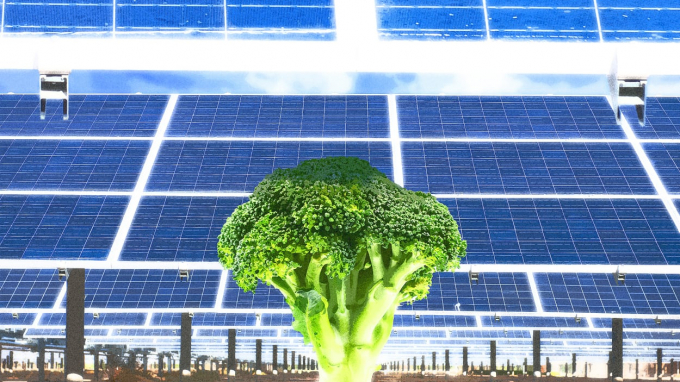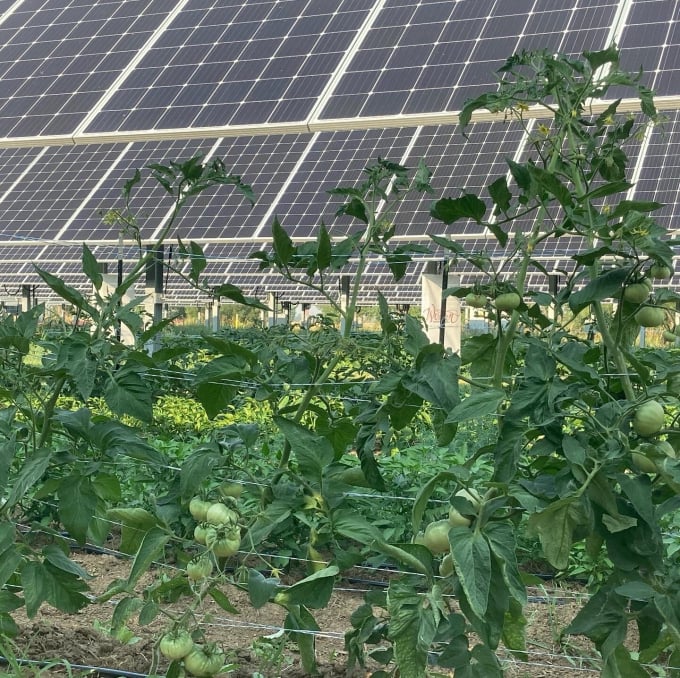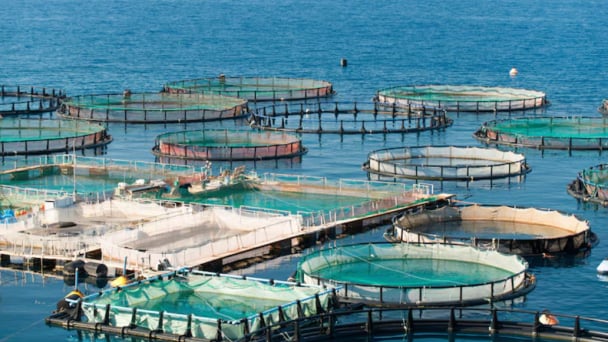June 6, 2025 | 06:19 GMT +7
June 6, 2025 | 06:19 GMT +7
Hotline: 0913.378.918
June 6, 2025 | 06:19 GMT +7
Hotline: 0913.378.918

Broccoli or cauliflower is a very suitable plant to grow underneath solar panels in Korea.
According to a new study by Chonnam National University in South Korea, broccoli or cauliflower is a very suitable plant to grow underneath solar panels.
This research project is part of the growing field of “agricultural electricity”, in which agronomists and energy experts research on opportunities for solar power and agriculture to exist on the same land, as an attempt to meet the world's need for energy and food.
New findings published by Korean experts in the Agronomy journal show that the shade provided under solar panels helps give broccoli a darker green color, which makes the vegetable more appealing to consumers. On the other hand, the brocoli also grows strongly and retains its nutritional value.
However, the biggest financial benefit for farmers still comes from energy production as reported by author Kang Mo-Ku, a professor of horticulture. According to the research, income from solar energy is estimated to be 10 times higher than that from growing broccoli. Research results showed that broccoli farmers are missing out on great money-making opportunities by not installing solar panels in their fields.
Jordan Macknick, an agricultural electricity expert at the National Renewable Energy Laboratory in Colorado (USA), said that "the research conducted by Korean experts is very interesting". He encouraged additional research from other countries as well as with other crops.

Clean tomatoes grown at Jack's Solar Garden's.
Mr. Macknick said his team will work on several similar projects for carrots, kale, peppers, tomatoes, etc. “One of the problems with agricultural electricity lies in the term 'electricity', which may sound strange for some people, especially for those not working in the energy sector. But this concept means that farms can produce both energy and food on the same land area, and this is essential for the transition to clean energy” remarked Mr. Macknick.
According to experts, the combination of solar power and agriculture has only worked on a small scale of a few acres so far, with most of the electricity generated consumed by the farm. This is not economical for mega-scale projects of up to hundreds or thousands of acres.
In addition, income from solar is much higher than income from most crops, so many farmers may not mind taking advantage of additional crops grown on land with solar panels.
Jack's Solar Garden in Colorado has become a pioneering example of a business that combines solar power and sustainable agriculture, including areas for wildflowers and different plants to help nourish the natural habitat for bees.
Crops that work best with solar power can vary greatly depending on the local climate, said Mr. Macknick. South Korean farmers can benefit from growing broccoli underneath solar panels; but US farmers may find higher profits from tomatoes grown following this method.
Translated by Nguyen Hai Long

(VAN) Technology is redrawing the map of Vietnamese aquaculture: more modern, greener, and more sustainable.

(VAN) Novel process harnesses machine learning to reveal groups of genes that determine how efficiently plants use nitrogen.

(VAN) Several scientists and farmers are experimenting with soil treatment in some key durian-growing regions such as Cai Lay (Tien Giang), Dak Song, Gia Nghia, and Dak R’lap (Dak Nong).
/2025/05/25/4127-3-073637_820.jpg)
(VAN) Thanks to the promotion from an FAO-implemented project, vegetable production in greenhouses in Moc Chau has seen strong development, from 1.5 hectares in 2021 to nearly 50 hectares in 2024.

(VAN) FAO has recently supported USD 140,000 to implement the project 'Risk mitigation human-animal interface risks through disease control initiatives in pig farming.'

(VAN) The People's Committee of Tra Vinh province has approved an adjustment to the investment policy for the Green Hydrogen Plant project, increasing its area to approximately 52.76 hectares.
![Reducing emissions from rice fields: [2] Farmers’ commitment to the soil](https://t.ex-cdn.com/nongnghiepmoitruong.vn/608w/files/news/2025/05/05/dsc08881jpg-nongnghiep-140632.jpg)
(VAN) Clean rice cultivation model in Thuong Tan commune, Bac Tan Uyen district, is assisting local residents in achieving sustainable agriculture by substantially reducing costs, increasing productivity, and protecting the environment.